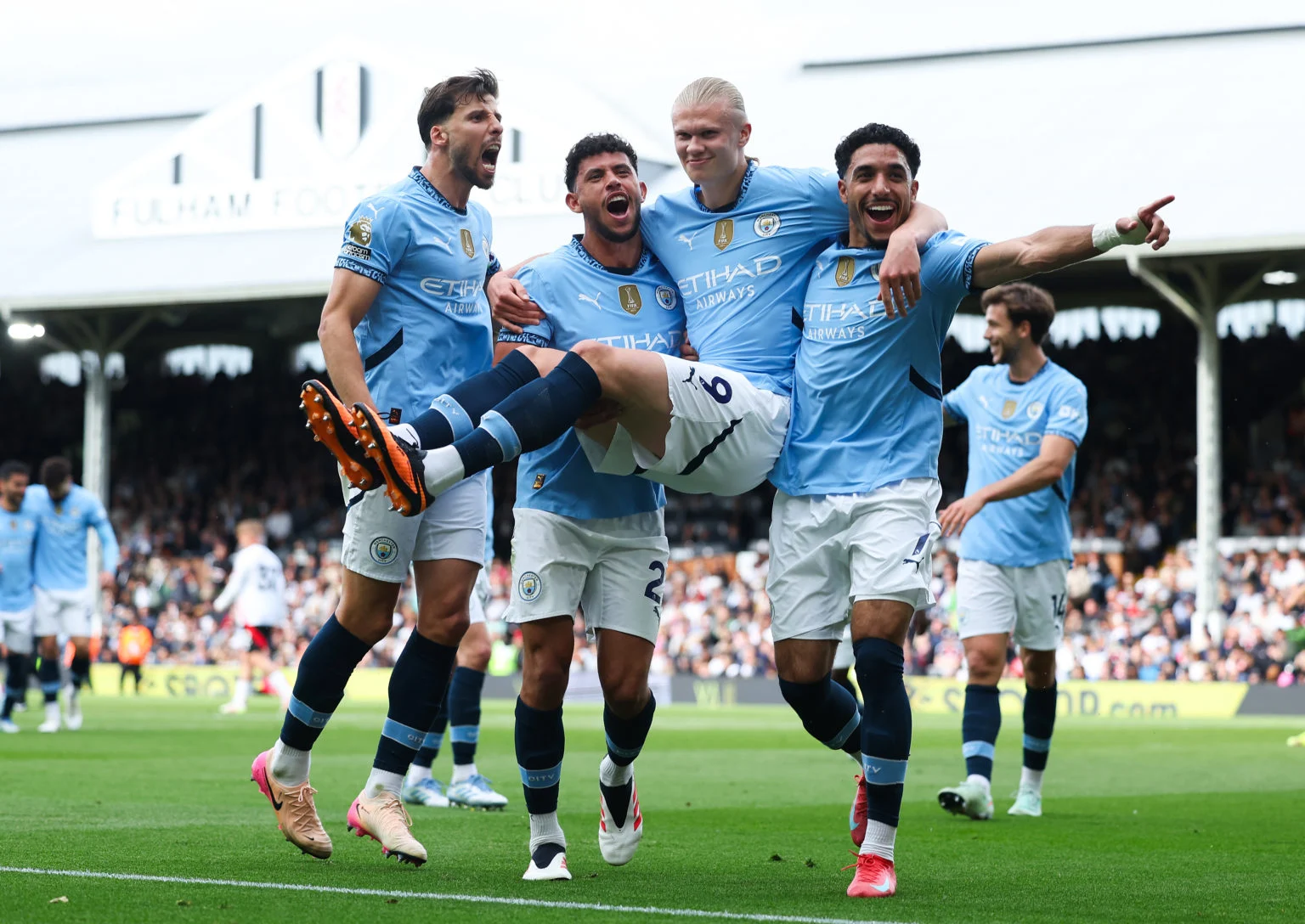Man City fans now willing to give £53m player a chance after what he did last season, he could be ‘perfect

Manchester City have made significant additions to their squad this summer, with Pep Guardiola welcoming Tijjani Reijnders, Rayan Cherki, Rayan Ait-Nouri, and Marcus Bettinelli to the Etihad Stadium. Despite these quality signings, the club still faces challenges in completing their ideal squad ahead of the Premier League’s August return.
Fabrizio Romano has identified the right-back position as Manchester City’s next priority, highlighting this as the most pressing issue requiring resolution before the season begins. The club’s inability to secure a new right-back during the current transfer window has created uncertainty about their defensive options for the upcoming campaign.
The Kyle Walker Void
Kyle Walker’s departure to AC Milan left a significant gap in Manchester City’s defensive structure. The England international had been a crucial component of Guardiola’s system, providing pace, defensive reliability, and attacking contributions from the right flank. His exit created both tactical and leadership voids that the club has struggled to fill through the transfer market.
The challenge extends beyond simply finding a replacement player. Guardiola’s system demands specific attributes from his full-backs, requiring them to function as auxiliary midfielders while maintaining defensive solidity. This dual responsibility makes suitable candidates relatively rare and expensive in the current market.
Matheus Nunes: The Unlikely Right-Back
Originally signed from Wolves for £53 million in summer 2023 as a midfielder, Matheus Nunes has emerged as Manchester City’s primary right-back option. His successful transition to this position last season demonstrated both his adaptability and Guardiola’s tactical flexibility.
Nunes’ midfield background provided him with the technical skills and spatial awareness necessary to excel in Guardiola’s demanding right-back role. His ability to contribute in both defensive and attacking phases made him a valuable asset during the post-Walker transition period.
The Portuguese international’s performances at right-back proved that Manchester City could address their positional needs through internal solutions rather than expensive external signings. His adaptation highlighted the importance of versatility and tactical intelligence in modern football.
Fan Support and Realistic Assessment
Manchester City supporters have embraced Nunes’ continued presence at right-back, recognizing his commitment and professional attitude. Fan comments emphasize his willingness to learn and adapt, describing him as having “a very good attitude” and being a “perfect Pep player.”
Supporters acknowledge both his strengths and areas for improvement. They praise his pace, power, and defensive development while recognizing that ball retention and decision-making remain concerns. This balanced perspective reflects the fanbase’s understanding of player development processes.
One fan noted: “He has a very good attitude. Perfect Pep player. Patient and open to learn.” Another added: “He definitely has the skills to be a good right back. Pace, power, defending is much improved, and the quality to make runs and cross in the final 3rd. But he still gives the ball away too much.”
Technical Strengths and Weaknesses
Nunes possesses several attributes that make him suitable for the right-back role. His pace and physical strength provide the foundation for modern full-back play, while his crossing ability and final-third runs offer valuable attacking contributions. His defensive awareness has improved significantly since transitioning to the position.
However, areas for improvement remain evident. His tendency to lose possession in critical moments has been identified as a key concern. Ball retention under pressure and decision-making in tight spaces require continued development if he is to establish himself as a long-term solution.
Club World Cup Struggles
The FIFA Club World Cup exposed some limitations in Nunes’ game, with his struggles during the tournament highlighting the ongoing nature of his positional development. The high-level competition revealed areas where improvement is still needed, particularly against elite opposition.
These difficulties served as valuable learning experiences, providing insights into the specific aspects of his game that require attention. The tournament demonstrated that while Nunes has made significant progress, his development as a right-back remains a work in progress.
Strategic Implications
Persisting with Nunes at right-back carries both advantages and risks for Manchester City. His familiarity with the system and ability to play multiple positions provide tactical flexibility and squad depth. From a financial perspective, his versatility allows resources to be allocated to other areas of the squad.
However, relying on a converted midfielder at right-back also presents potential vulnerabilities, particularly if his development stagnates or if he struggles with consistency. The club must balance the benefits of his adaptability against the security that a specialist right-back might provide.
Guardiola’s Development Philosophy
The Nunes situation exemplifies Guardiola’s approach to player development and tactical innovation. His willingness to experiment with positions and patient support for players during transitions reflects his broader coaching philosophy. The manager’s emphasis on attitude and mentality over purely technical considerations has made Nunes an ideal candidate for positional experimentation.
Guardiola’s belief in the importance of technical ability across all positions has proven correct in this instance, demonstrating the value of prioritizing fundamental skills in player recruitment and development.
Market Realities
Manchester City’s apparent struggle to secure a new right-back may reflect broader market conditions and financial constraints. Quality full-backs command premium fees in the current market, while Financial Fair Play considerations may be influencing the club’s approach to this position.
The decision to persist with Nunes may represent a pragmatic response to these market realities, allowing the club to maintain competitiveness while managing financial commitments effectively.
Long-term Considerations
The success of Nunes’ positional transition will have implications for Manchester City’s future transfer strategy and approach to squad development. His continued evolution as a right-back will provide valuable insights into the effectiveness of internal solutions versus external signings.
The support of the fanbase will be crucial in his continued development, as their patience and understanding create the positive environment necessary for sustained improvement. The sophisticated tactical knowledge displayed by supporters suggests they understand the complexities of his positional transition.
Conclusion
Manchester City’s right-back situation represents a fascinating case study in modern football squad management. While the club continues to seek external solutions, Matheus Nunes’ development provides a viable internal option that addresses immediate tactical needs while demonstrating the value of versatility in today’s game.
The Portuguese international’s journey from midfielder to right-back exemplifies the evolution of modern football, where positional flexibility and tactical intelligence have become increasingly important. His continued development will be closely watched as Manchester City navigate the challenges of the upcoming season.
Whether Nunes represents a temporary solution or a long-term answer to City’s right-back needs remains to be seen. However, his commitment to the role and the support of fans and coaching staff suggest that his positional transition will continue to evolve, potentially providing Manchester City with an unexpected solution to one of their most pressing tactical challenges.















